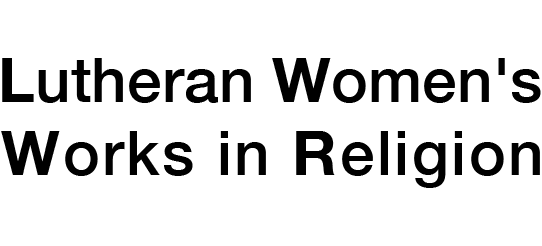Category: Biblical Studies
BOOKS
Sharon Betcher Calling of the Nations: Biblical Hermeneutics, Colonial & Postcolonial PreOccupations.., eds. Mark Vessey, Sharon Betcher, Harry Maier, and Robert Daum. Toronto: University of Toronto Press 2051Current notions of nationhood, communal identity, territorial entitlement, and collective destiny are deeply rooted in historic interpretations of the Bible. Interweaving elements of history, theology, literary criticism, and cultural theory, the essays in this volume discuss the ways in which biblical understandings have shaped Western – and particularly European and North American – assumptions about the nature and meaning of the nation.
Introduction both to ways women are presented in biblical texts and to methods for interpreting biblical texts. Appropriate for congregational groups or as supplementary reading in college settings.
This 4-session Bible study uses four paradoxes as lenses to look at Paul’s letter.
This is an adult, devotional study on Paul‘s Letter to the Philippians that reflects on four paradoxes that reside within the text (Joyful Sorrow, Individual Community, Masterful Slave, Downward Ascent). Each chapter opens with a contemporary story that connects the reader with the theme of the chapter, and each chapter connects with the one it follows. Using insights from current theological and social-scientific methods to explore Paul‘s letters, as well as issues as contemporary as economic concerns, Hurricane Katrina and the 2008 Presidential race, the authors guide the reader from Paul‘s historical situation to their present reality.
Provides an introduction to the Bible and Lutheran perspectives that guide understanding of Scripture. This book explores four methods of Bible study, then applies each method to four Scripture texts. Two assessment tools also aid reflection and discussion about Bible usage, needs, and hopes.
Provides accurate, concise, and easy-to-understand introductions to each of the 39 books of the Old Testament and 27 books of the New Testament. Each description discusses the book’s purpose, approximate date of composition, authorship, contents, and distinctive features. Also included are introductions to larger sections of the Bible, such as the major and minor prophets.
Through a detailed evaluation of treatments of circumcision in the primary authors of the second century BCE to the first century CE, Livesey demonstrates that there is no common or universally recognized meaning for the Jewish rite of circumcision. The meaning of circumcision is contingent upon its literary context.
Explores the creation theology of the book of Job, particularly the God speeches at the end of the book, and their relation to the rest of the book. Includes some reflection on ecological implications of Job‘s creation theology.
Studies the ways Christians have read six biblical narratives about sexual violence, using biblical commentary, homilies, and devotional writings as a window into the history of the church’s attitudes about rape. Schroeder analyzes the patterns of Christian interpretation, from the early church through the Reformation, and shows that traditions of interpretation are often more disturbing and horrifying than the texts themselves.
This book is about remembering why our ancestors in faith wrote the Bible and recovering its importance for the church today. I seek to provide an alternative to literalism and liberalism by integrating ancient perspectives with contemporary scholarship so that we can once again claim the Bible as a means of grace that forms, informs, transforms and reforms the faith of individuals and communities.

